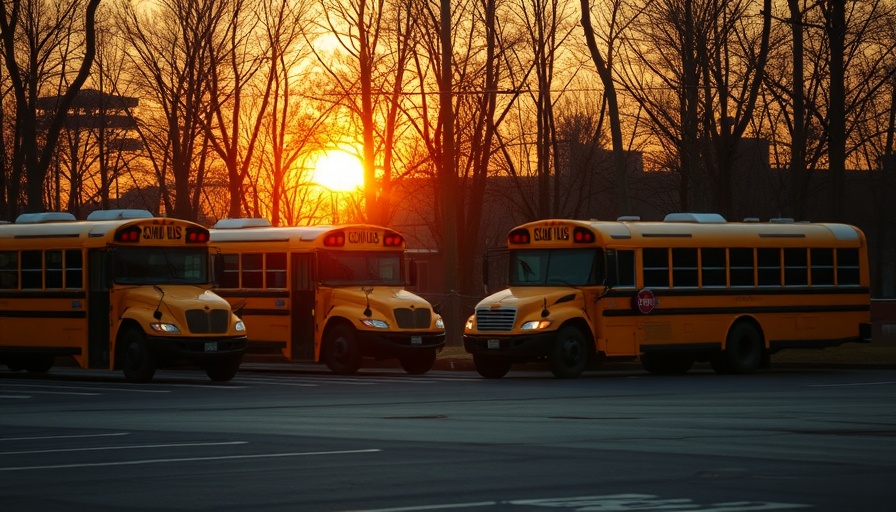
Trump’s Bold Move Against Diversity in Public Schools
The Trump administration's aggressive stance on diversity, equity, and inclusion (DEI) in public schools signals a pivotal moment in U.S. education politics. As federal funding often plays a crucial role in shaping school programs, President Trump's threats to withhold funds could drastically alter the educational landscape. Public schools, which largely depend on local and state funding, receive only about 10% of their monetary support from the federal government. The looming risk of federal funding cuts adds a layer of tension to the debate surrounding DEI programs.
Defiance from States: A Growing Resistance
States like California, New York, and Michigan have emerged as battlegrounds in this dispute, refusing to comply with what they deem an overreach of federal authority. With multiple Democratic-leaning states openly opposing Trump's directive, a significant confrontation is brewing. The legal challenges presented by the nation's prominent teachers’ unions and civil rights organizations, including the N.A.A.C.P., illustrate the deep divisions within American politics regarding educational equity and civil rights.
The Legal Landscape: Lawsuits and Implications
As court cases proceed, the outcome remains uncertain. Legal experts argue that the Trump administration is twisting a narrow Supreme Court ruling related to affirmative action to apply broadly to K-12 education. This interpretation is being hotly contested, and the potential for these cases to reach higher courts could shape the future of educational policy for years to come. A ruling that permits the curtailing of DEI programs could have significant implications, not just on funding but also on the broader discourse surrounding race and education in the U.S.
Broader Context: Education and Civil Rights
The intersection of education and civil rights is undoubtedly a critical battleground. Proponents of DEI argue that these programs are essential to address systemic racism and inequities entrenched in educational systems. Opponents, however, claim such initiatives result in reverse discrimination. This ongoing debate reflects larger national themes regarding race relations, immigration, and social justice. Understanding the nuances of this conflict is essential to grasp the broader implications for American society.
Social Implications: Community Voices Matter
Many parents and educators across the nation express concern about how changes in federal education policy may affect local school climates. Communities are deeply divided on the topic of diversity initiatives, highlighting differing philosophies on how best to ensure a fair education for all students. The voices of these communities will play a critical role as schools navigate these contentious waters.
Future Trends: Predictions and Possibilities
As the U.S. moves closer to the next presidential election, education policy will undoubtedly remain at the forefront of public discourse. Should Trump’s administration succeed in reshaping educational equity under federal laws, it could set a precedent for how future administrations approach issues of race and education. This could lead to either a regression in diversity initiatives or a revitalization of public engagement in the fight for equitable education across the board.
Take Action: Why Staying Informed Matters
With such significant changes potentially looming in U.S. public schools, it’s essential for the community to stay informed. Active participation in local school board meetings and advocacy for inclusive policies ensures that diverse voices are heard in shaping educational practices. Education is a collective responsibility; understanding these issues can lead to stronger community action towards advocating for equitable solutions in our schools.
 Add Element
Add Element  Add Row
Add Row 



 Add Row
Add Row  Add
Add 


Write A Comment